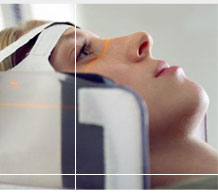 The Official Journal of the American Congress of Rehabilitation Medicine recently published nine “position statements” on traumatic brain injury (TBI) in the November 2010 issue of its magazine, The Archives of Physical Medicine and Rehabilitation. These statements create a common set of standards that will help measure and classify brain injuries. The medical community hopes the standards will increase consistency across the various groups involved with researching treatments for brain injuries and related health problems.
The Official Journal of the American Congress of Rehabilitation Medicine recently published nine “position statements” on traumatic brain injury (TBI) in the November 2010 issue of its magazine, The Archives of Physical Medicine and Rehabilitation. These statements create a common set of standards that will help measure and classify brain injuries. The medical community hopes the standards will increase consistency across the various groups involved with researching treatments for brain injuries and related health problems.
A New Focus for Researchers
The Archive’s Deputy Editor, Dr. Leighton Chan commented that the statements represent, “…a monumental undertaking, bringing together the NIH, DOD, VA, CDC, and other international partners. This set of papers will set the stage for all future clinical research on TBI and post-traumatic stress disorder (PTSD), diverse, yet interrelated, fields.”
Together, the statements outline the current state of research and treatment for brain injuries. Doctors point out that the medical community has long recognized the connection between psychological disorders and brain injuries. Recent military actions in Iraq and Afghanistan have resulted in a rise in brain injuries with Post Traumatic Stress Disorder (PTSD). The frequent combination of the two problems shows how deeply interrelated these two fields are. Brain injuries and psychological disorders share common risk factors, symptoms, features and impairments.
Creating Common Ground
The papers go on to discuss the importance of using common study variables so that research findings can be compared against one another. In order to address this concern, scientific experts worked together creating recommendations for future research in both brain injury and psychological health fields.
These experts agree that the definition of traumatic brain injury must be changed to include any alteration in brain function or pathology caused by an external force. The group also worked to find ways to separate brain injuries from psychological disorders when patients seek treatment late after an injury.
Diagnostic Tools
Other topics covered by the papers include the importance of establishing common primary research objectives to help measure the effectiveness of various treatments across studies. Doctors believe radiologic brain imaging is vital to characterizing and classifying injuries so that studies and clinical trials are using the same information.
Another important tool is the use of bodily fluids to help detect and classify the most promising potential treatments. Researchers hope to minimize the current disparity in ways that specimens are collected and handled. By setting standards like these, researchers across many fields can share study results and advance the pace of research.
Researchers paid special attention to the military and common problems seen by soldiers and their families. Researchers saw the need to create common standards for research in Post Traumatic Stress Disorder (PTSD), but pointed out the need to study and treat all forms of stress for military members and families, not just PTSD.
Contact Us
If you or someone you love suffers from a brain injury, contact our office for an in-depth explanation of your rights under the law.


